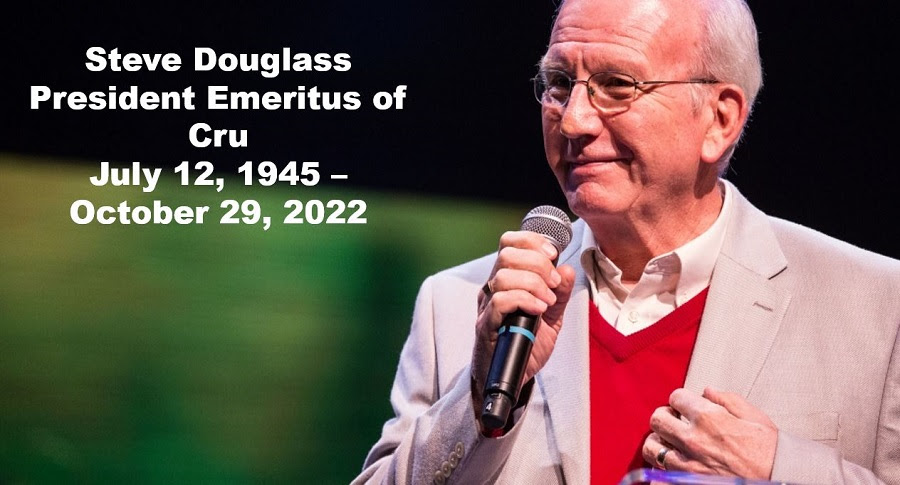GUEST POST ~ Good Leadership Starts With Good Questions
|
Guest Post by John Hagel
Originally Posted @ Harvard Business Review
Leaders today need to revisit an overlooked skill: asking questions. In my 40 years as an executive and advisor in Silicon Valley, I’ve often seen leaders assume that people look to them for answers — bold assertions that build people’s confidence in their competence. But in reality, that kind of approach erodes trust, especially at a time when so much is manifestly uncertain. You think you have the answers to all important questions? That suggests that you are either clueless — you have no idea how rapidly the world is changing — or that you are lying. In either case, you won’t find that trust that you’ve been looking for.
Instead, leaders should ask powerful and inspiring questions, convey that they don’t have the answers, and solicit others’ help to find them. The leaders I talk to tend to be nervous about this approach: Won’t it look like they don’t know what they’re doing? On the contrary, however, research has shown that expressing vulnerability and asking for help is a strong signal to others that you are trusting, and you’re more likely to be trusted in return. In fact, if you can learn to ask questions well, it can help you connect with others. Thinking together can put you on the path to solving intractable problems and sparking innovative thinking.
Drucker Forum 2020
This article is one in a series related to the 12th Global Peter Drucker Forum, with the theme “Leadership Everywhere.” See the program here.
Ask Big Questions
To be clear: I’m not saying you should ask pointed questions that put others on the spot, like “How can you deliver 10% higher productivity?” or “Are you missing anything here?” The kind of questions leaders need to ask are those that invite people to come together to explore major new opportunities that your organization hasn’t identified yet. Here are some examples:
- What is a game-changing opportunity that could create much more value than we have delivered in the past?
- What are emerging unmet needs of our customers that could provide the foundation for an entirely new business?
- How could we leverage the resources of third parties to address a broader range of the needs of our customers?
- How can we move from standardized, mass-market products and services to personalizing our products and services to the specific needs of each customer?
- How can we develop supply networks that would be more flexible in responding to unanticipated disruptions in production or logistics?
- How could we harness sensor technology to create more visibility into how our customers are using our products and use this information to deliver more value and deepen trust with our customers?
Focusing your questions on these kinds of new and big opportunities rather than on the existing activities of the organization can also help you to sidestep your fear that questioning will be seen as a sign of weakness, since there’s no way you could be expected to know the answers.
These broader questions also communicate that you have a sense of ambition, that you want to take the organization way beyond where it is today. And you can bolster your credibility by providing evidence of those long-term trends that underlie your question – for example, emerging technologies that are likely to offer new opportunities, or demographic shifts that will create some significant unmet needs among your customers.
Involve Others
These questions also invite collaboration. To make the most of them, don’t ask them in closed leadership meetings. Instead, broadcast them throughout your organization and even beyond it. It’s not just you posing a question to your people, it’s your brand reaching out to learn from its consumers. Reaching out beyond the institution to connect with expertise and perspectives from a broader set of more diverse sources will help your company learn faster.
For example, take Domino’s Pizza. About 10 years ago, Domino’s was hearing from customers that they did not like the company’s pizza. Many organizations might have tried to hide this information or work behind the scenes to correct the problem. Domino’s Pizza did something different. They made public the feedback they were receiving and asked for suggestions on how they could improve the quality of their pies. This open question generated an avalanche of suggestions that proved very helpful in improving the pizzas.
But beyond an open innovation success, the impact was even more fundamental: by expressing vulnerability, I believe that the company built trust with customers. Here was a company that was willing to acknowledge they had a problem and to ask for help in addressing the problem. If more organizations were willing to ask for help from their customers and other stakeholders when experiencing a problem, they would likely have much greater success in re-building trust.
Change Your Culture
Anxiety can run high in volatile times, and by asking these kinds of questions you can help people overcome some of their fears. It’s well established in the psychology field that coming together with others can reduce anxiety — that’s the idea behind group therapy. And achieving real impact can also help overcome feelings of being overwhelmed. Thus by helping people to focus on short-term actions they can take together, your questions can provide a focusing and calming effect during a crisis. .
By asking questions as a leader, you also communicate that questioning is important. You’ll inspire people to identify new opportunities and to ask for help when they need it. These behaviors lead to a culture of learning, which is critical, since the institutions that will thrive in the future are those that encourage everyone to learn faster and more rapidly expand the value that they deliver to their stakeholders.
This will be especially true if you encourage exploration that can generate new insights into potential answers to your questions, rather than simply expecting complete answers and nothing less. This will encourage people to make small moves initially that can quickly help to increase excitement about the question since participants can quickly begin to see progress. As early answers to your question begin to emerge (as a result of experiments or research, for example), share them, even if they are not groundbreaking. They’ll contribute to your culture of learning and show your stakeholders that your questioning is generating new insights, increasing their confidence in your methods.
Leaders who ask powerful questions have the greatest success in both seizing new opportunities and addressing unexpected challenges — and they build cultures that will carry these benefits into the future.
|
|
|



